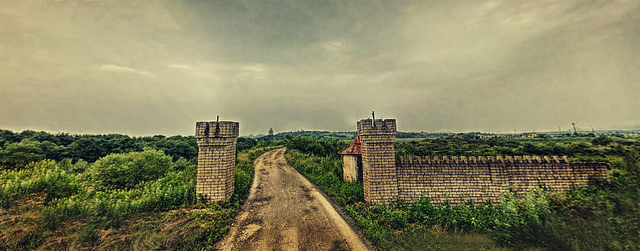Australia, don’t underestimate Russia’s interests in Korea

Fiery rhetoric between the White House and Pyongyang dominated news in 2017. The Kim regime caused the world to hold its breath amidst numerous missile launches and one nuclear test, which were condemned in capitals around the world. Multiple commentators stated that the world was on the brink of war.
In contrast, it seems that this year has offered not only a change in rhetoric but also perhaps the beginnings of a change in behaviour. We witnessed an inter-Korean summit at the end of April, and a meeting between Kim Jong‑un and President Donald Trump is planned.
The optimists’ excitement should be met with caution, however, as the past has shown similar developments, but talks or negotiations eventually failed.
Multiple stakeholders are involved in attempting to find a solution to the security issue on the Korean peninsula. One that has been often overlooked in the past is the Russian Federation. Sharing an 18‑kilometre border and having an historic economic, political and military relationship, Moscow remains an important player in the Northeast Asian game.
While the ‘North Korea issue’ doesn’t top the Kremlin’s priority list, it offers a chance for the Russian government to work on its ambitious strategy to expand the country’s international presence and engagement. Based on its involvement in the Syrian conflict, Russian officials often claim that the Russian government has powerfully and successfully returned to the global stage. Unfortunately, the way in which that was occurred has mainly generated concern in the international community.
In my new paper for ASPI, Putin and North Korea—Exploring Russian interests around the peninsula, I argue that ‘the Kremlin opposes a nuclear North Korea and its development of nuclear and missile programs, it favours a stable peninsula, and it increasingly criticises the US presence and involvement in the region’.
To illustrate the specific interests driving the Russian government’s involvement around the peninsula, the paper examines geopolitical, strategic, economic and national policy interests, drawing on official statements over 2017, as well as interviews with Russian experts on North Korea.
Close involvement in possible negotiations would secure the Russian government’s ability to influence the security architecture in the region based on its own interests and rules. This might affect the influence and presence of the US in the region, as well as the nuclear proliferation environment in the Indo-Pacific.
The Kremlin also always promotes its economic interests. Stability on the Korean Peninsula would open up opportunities to tap into the energy market on the peninsula itself, and further establish regional economic partnerships. That would benefit the poorly performing Russian economy, assist the development of the Russian Far East and help compensate for the effects of international sanctions applied to Russia since its illegal annexation of Crimea.
Expanded economic relations is another national interest that Moscow is pursuing. The Russian government opposes what it claims to be increased use of sanctions as a foreign policy tool, in part because President Vladimir Putin wants to demonstrate that sanctions are insufficient to cause regime change. More importantly, Russia wants to undermine the international communities’ confidence in sanctions in order to reduce pressure on Russia itself.
Putin notes that North Korea has been disregarding international agreements by developing its own missile and nuclear program, despite being subject to sanctions since 2006. The sanctions haven’t prevented the regime surviving and developing the country to a certain degree.
I’ve argued before that an increased Russian role in the Indo-Pacific shouldn’t be underestimated. Alexey Muraviev also noted Russia’s increased military power throughout Asia and the Indo-Pacific in his ASPI report, BEARing back: Russia’s military power in the Indo-Asia-Pacific under Vladimir Putin.
At first, it might seem unclear why Australia would have an interest in Russia’s motivation to be involved in finding a solution to the security issues on the peninsula. The Kim regime’s missiles, which may one day be able to reach the US, don’t pose a direct threat to Australia, mainly because the Kim regime is unlikely to prioritise Australian territory for a strike from its limited arsenal of long-range weapons. Australia is geographically detached from the Korean Peninsula and only a middle power in the region.
However, the consequences of instability in Northeast Asia have implications for Australia. The country is part of the Indo-Pacific as an arena of both security and economic relations. Canberra is, furthermore, connected through security alliances to South Korea as a security guarantor since the 1953 Korean armistice agreement, to Japan as a security partner, as well as to the US as its most important ally in the region.
The unstable situation, even without an escalation to military use, will continue to affect the Indo-Pacific over the long term and has the potential to affect the US position in the region. North Korea watchers and analysts in Australia that I’ve spoken with in preparing the paper agree that the future of Canberra’s main ally in the region is of vital interest to the Australian government.
Furthermore, they stated that a potential conflict in the region would have enormous economic consequences for Australia. The Australian government should therefore have a conscious interest in developments and stakeholders involved around the peninsula, and especially be aware of what specifically drives the involvement of major actors—including Russia.